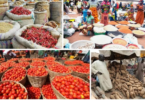The World Bank has identified Nigeria and 14 other countries as having weak credit ratings for sovereign bonds. This is contained in its latest report, “The Great Reversal: Prospects, Risks, and Policies in International Development Association (IDA) Countries.”
The list includes Cameroon, Democratic Republic of Congo, Republic of Congo, Ethiopia, Ghana, Lao People’s Democratic Republic, Maldives, Mali, Mozambique, Niger, Nigeria, Pakistan, Solomon Islands, Sri Lanka, and Zambia, all classified as needing substantial support due to their lower income status.
The report read:
It noted that synchronized interest rate hikes in many advanced economies in response to inflation have led to tighter global financing conditions. This shift has seen the median sovereign bond spread for IDA countries expand dramatically—from 4.7%-points in 2019 to a peak of 12.4%-points in May 2023, eventually settling at 7.8%-points by March 2024. These conditions have sidelined IDA countries with weak credit ratings from global capital markets, resulting in the longest bond issuance drought since the global recession in 2009.
The report added:
The World Bank’s report details a concerning trend of widening fiscal deficits, leading to a significant rise in public debt relative to GDP in these nations.
From 2019 to 2023, the median government debt-to-GDP ratio in IDA countries increased by approximately 6.7%-points, nearly tripling the increase observed in other emerging markets and developing economies (EMDEs) to over 50%, the report noted.
Particularly in Low-Income Countries (LICs), public debt has escalated by about 12%-points of GDP between 2019 and 2023, with nearly 70% of IDA countries experiencing a rise in their debt-to-GDP ratios during this period.
The report read:
The World Bank report also shed light on the increasing fiscal strains as more government revenues are now allocated to interest payments. In 2023, IDA countries saw net interest payments relative to government revenues rise to 7.3%, a surge of 3.3%-points from the pre-pandemic averages, which is significantly higher than the 1.7%-point increase observed in other EMDEs.
The report noted:
American-based credit rating agency, Moody’s Investors Service (Moody’s), moved Nigeria’s credit outlook from stable to positive in December 2023. The uptrend moves from stable to positive indicates, according to the statement, the possible reversal of the deterioration in Nigeria’s fiscal and external position as a result of the authorities’ reform efforts. However, the international firm maintains the country’s long-term issuer ratings at Caa1, noting that the structural reforms are undercut still by “weak fiscal and external positions.”
In January 2024, Nonyane and Toby Iles, Fitch’s Head of Middle East and Africa Sovereigns, cautioned that Nigeria’s interest payments to revenue ratio, which surpasses 40%, poses a significant weakness for its credit rating four times higher than the median for B-rated sovereigns. In November 2023, Fitch rated Nigeria at B- with a stable outlook despite a cornucopia of macroeconomic malaise- record-level inflation, wobbling naira, and limping crude oil production.
Also, in February 2024, the global credit ratings agency, Standard and Poor (S&P), affirmed Nigeria’s short-term foreign and local currency sovereign credit worthiness at ‘B-/B’ and Nigeria’s long- and short-term national scale ratings at ‘ngBBB+/ngA-2’. The firm noted that the outlook was stable. However, the firm stated that the challenge for President Tinubu’s administration remains managing the effects of inflation and currency depreciation.







